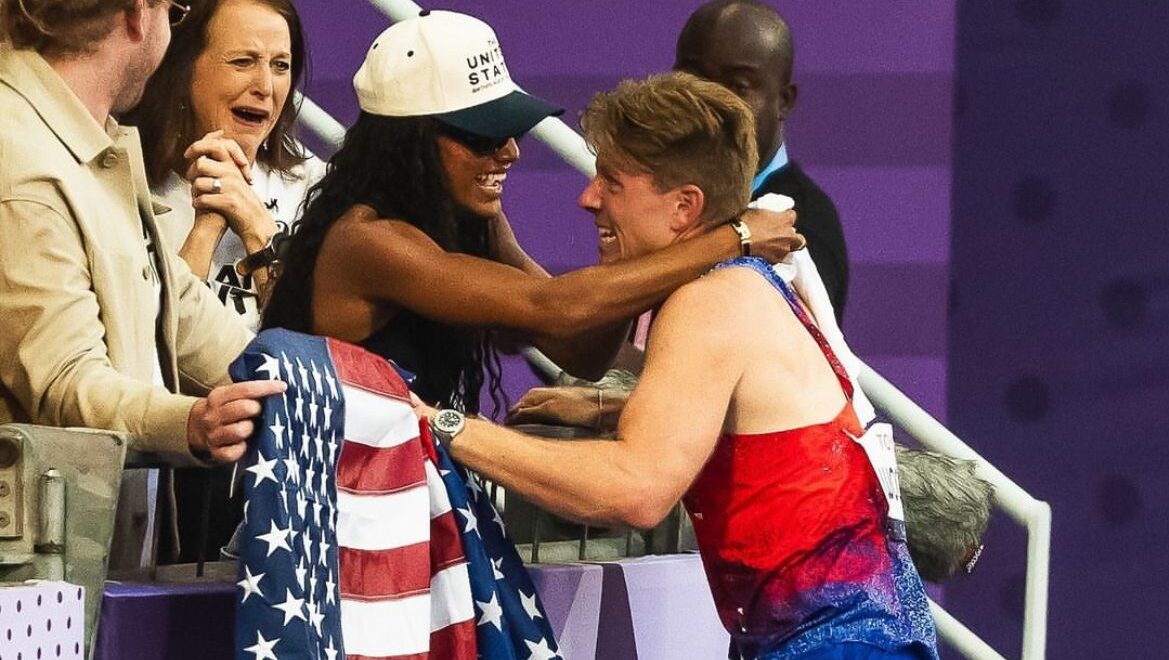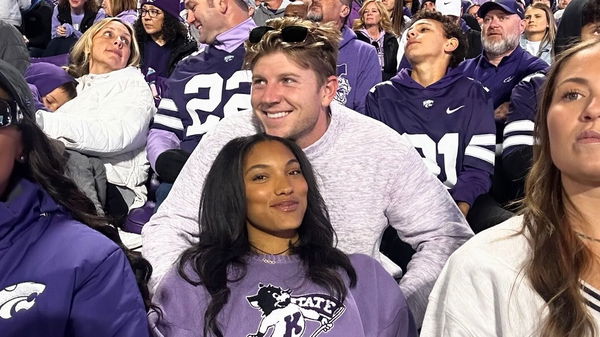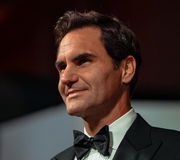

When Marie-Amélie Le Fur said, “The Games are not over yet, and all the ingredients are there to prolong the magic.” She wasn’t just being poetic. She was prophetic. And the world saw her words come to life on the night of September 6, when nearly 80,000 fans filled the Stade de France—not for an encore of the Olympic Games, but for a celebration of something just as spectacular: the Paralympic Games. At the center of that magical moment stood Tara Davis-Woodhall, cheering with pride not for herself but for her husband, Hunter Woodhall, a Paralympian whose journey has inspired countless people worldwide. It wasn’t just a victory lap; it was a love story, a story of support, and, ultimately, a story about what it truly means to be a champion — both on and off the track. However, the Woodhalls didn’t just show up for each other.
Watch What’s Trending Now!
They showed up for the sport. They showed up for the movement. In a candid conversation on the Well Played podcast, Hunter Woodhall reflected on how voices like Tara’s, Simone Biles’, and Ilona Maher’s helped boost the Paralympics to new heights. “Right after she won [Tara], she went on like national television and said, like, ‘Guys, it’s not over; like, the Paralympics are coming up. Watch it’.” That moment of advocacy, amplified by others with massive platforms, gave the Games something that’s been hard-earned and long overdue: legitimacy. And people responded — tuning in, showing up, and cheering loudly.
That spark lit by Olympians became a torch carried by fans, athletes, and storytellers alike. And while the world often sees gold medals as the pinnacle of achievement, Tara Davis-Woodhall found gold in something even more profound: inspiration. “Some people just have had accidents like a year prior to making this Paralympics team, and I’m like, what, like people don’t know their stories,” she said, stunned. “Their stories are insane. It’s like, okay, this person has a disability either they were born with it or a gnarly accident has happened they survived and out here competing doing the same thing that, like, I’m doing every day, getting up working out, and like, that is such for me, an inspiration.” And that, perhaps, is where the magic truly lived.
ADVERTISEMENT

ADVERTISEMENT
It’s no wonder, then, that out of 12 million total tickets sold for the Paris Games, 2.5 million were for the Paralympics — a record-breaking figure that once seemed out of reach. It’s a number that stands tall not just as a measure of attendance but as a testament to change. A sign that people care. That the spotlight can — and should — shine just as brightly on the athletes of the Paralympic Games.
Because this wasn’t just about prolonging the magic of the Olympics. This was about creating a new kind of magic. And apart from the Paris Paralympic Games, there was a change in recent times in track and field.
ADVERTISEMENT
Hunter and Tara Davis Woodhall appeared on the same track on the same day
On April 26, for the first time in their journey as partners in life and sport, Tara Davis-Woodhall and Hunter stood side by side, not just in love, but in competition, both stepping onto the same elite stage — the World Athletics Continental Tour (WACT). Tara soared through the air in the women’s long jump, while Hunter blazed around the track in the men’s 400m. It was more than a meet. It was history. And the significance wasn’t lost on them.
“It’s a dream come true for us to be competing on the same stage as such an elite level at the same track meet,” Tara said, her voice thick with emotion. “We’ve been dreaming for this moment since we started dating and training together, so it’s pretty surreal.” Yes, Tara found success in her event that night, while Hunter didn’t see the result he hoped for. But on this day, rankings and times seemed to fade into the background. Because something much bigger took center stage — the unspoken power of unity, of visibility, of a bridge being built between two worlds: the Olympic and Paralympic realms.
ADVERTISEMENT

ADVERTISEMENT
This wasn’t just about performance — it was about representation. For the crowd watching under the bright stadium lights and for fans tuning in across the world, this was a powerful image: two elite athletes — one able-bodied, one a double amputee — competing not in separate spheres, but on the same track, in the same meet, as equals. It was a sport transcending barriers.
Top Stories
Greg Biffle’s $4M Worth Prized Possession Still Without a Buyer Leaves NASCAR Fans Heartbroken

LIV Golf Braces for Another Possible Exit in Wake of Brooks Koepka Departure

Sean Payton Announces Retirement Plans as Broncos HC Demands Improvement From Bo Nix & Co. Before Playoffs

Biff Poggi All But Confirms Bryce Underwood’s Michigan Future After Announcing His Own Departure

Roger Federer Draws Criticism from Swiss Government Chief for Tourism Boom in Country

Amanda Balionis Confirms New Relationship Ending Months of Rumors

ADVERTISEMENT
ADVERTISEMENT
ADVERTISEMENT

